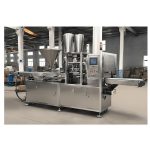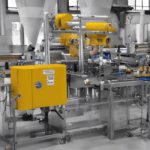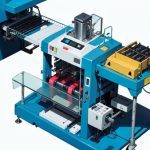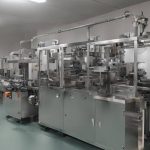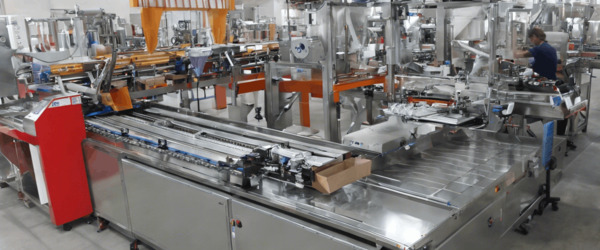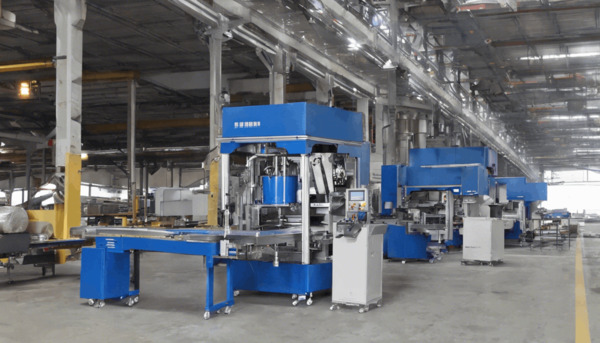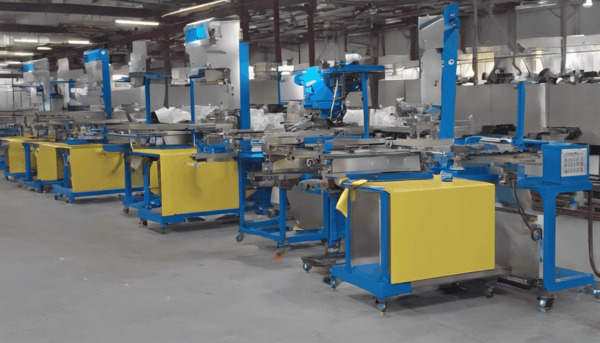
How Long Does Vacuum-Sealed Meat Last?
Vacuum sealing has revolutionized food preservation by extending the shelf life of perishable items like meat. By removing air from packaging, vacuum sealing minimizes exposure to oxygen, which is a primary factor in food spoilage. While vacuum-sealed meat undoubtedly lasts longer than conventionally stored meat, the exact duration depends on several factors, including the type of meat, storage temperature, and the quality of the sealing process.
In this comprehensive guide, we will explore how long vacuum-sealed meat lasts under different conditions, delve into the science of vacuum sealing, and examine how tools like automatic vacuum packing machines enhance food preservation. Additionally, we will discuss best practices for storing vacuum-sealed meat to ensure optimal freshness and safety.
The Science Behind Vacuum Sealing
How Vacuum Sealing Works
Vacuum sealing involves placing food in a specialized bag or container and using a vacuum sealer to remove air before sealing it shut. Oxygen plays a critical role in food spoilage because it promotes the growth of aerobic bacteria and mold, as well as oxidation that can degrade the taste, texture, and nutritional value of food. By reducing oxygen levels to near-zero, vacuum sealing slows down these processes significantly.
Moreover, vacuum-sealed packaging protects food from external contaminants like moisture, odors, and bacteria. It creates an airtight barrier that preserves the integrity of the food for much longer periods compared to traditional storage methods such as plastic wraps or containers.
Benefits of Vacuum Sealing Meat
For meat preservation specifically, vacuum sealing offers several benefits:
- Extended Shelf Life: Vacuum-sealed meat can last up to five times longer than meat stored using conventional methods.
- Flavor Retention: The airtight seal helps retain the natural juices, flavors, and nutrients of the meat.
- Reduced Freezer Burn: By eliminating air exposure, vacuum-sealed meat is less susceptible to freezer burn.
- Space Efficiency: Vacuum-sealed bags are compact and take up less space in your refrigerator or freezer.
How Long Does Vacuum-Sealed Meat Last?
Storage Duration by Temperature
The longevity of vacuum-sealed meat primarily depends on the storage temperature:
- Refrigerated (32°F to 40°F): Vacuum-sealed raw meat can last 1 to 2 weeks in the refrigerator compared to just a few days for non-vacuum-sealed meat.
- Frozen (-10°F to 0°F): Vacuum-sealed meat can last anywhere from 6 months to 3 years in the freezer without significant loss of quality. In contrast, non-vacuum-sealed meat may only last a few months before freezer burn sets in.
These durations are general guidelines and may vary based on factors such as the type of meat and how fresh it was at the time of sealing.
Type of Meat Matters
Different types of meat have varying shelf lives when vacuum-sealed:
- Beef and Lamb: These red meats typically last longer due to their lower water content. In the freezer, they can remain good for up to 3 years if vacuum-sealed.
- Poultry: Chicken and turkey can last up to 9 months in the freezer when vacuum-sealed.
- Pork: Vacuum-sealed pork can last up to 2 years in the freezer.
- Fish: Fish is more delicate and generally lasts 6 to 12 months when vacuum-sealed and frozen.
- Processed Meats: Items like sausages or cured meats (e.g., bacon) have a shorter shelf life, typically lasting up to 6 months when vacuum-sealed and frozen.
Factors Affecting Shelf Life
Several factors can influence how long vacuum-sealed meat remains safe and fresh:
- Initial Quality: The fresher the meat at the time of vacuum sealing, the longer it will last.
- Sealing Quality: A poor seal or damaged bag will allow air to enter, compromising the vacuum seal and shortening shelf life.
- Temperature Consistency: Frequent temperature fluctuations can cause condensation inside the packaging, promoting bacterial growth.
- Presence of Fat: Fatty meats tend to spoil faster because fat oxidizes even in low-oxygen environments.
The Role of Automatic Vacuum Packing Machines
What Are Automatic Vacuum Packing Machines?
Automatic vacuum packing machines are specialized devices designed to simplify and enhance the process of vacuum sealing food items. These machines automate key steps such as removing air, sealing bags, and sometimes even labeling or cutting excess bag material. They are widely used in both domestic and commercial settings for food preservation.
Benefits of Using Automatic Vacuum Packing Machines
Automatic vacuum packing machines offer several advantages over manual methods:
- Efficiency: They can seal multiple bags quickly and consistently, making them ideal for bulk storage.
- Precision: Advanced models allow you to control sealing time, pressure, and other parameters for optimal results.
- Ease of Use: Fully automated machines require minimal user intervention, reducing labor and errors.
- Enhanced Seal Quality: Automatic machines often produce a stronger and more reliable seal than manual devices.
Popular Applications of Automatic Vacuum Packing Machines
Automatic vacuum packing machines are used in various industries, including:
- Food Processing: For preserving meats, vegetables, fruits, and other perishable items on a large scale.
- Retail Packaging: In supermarkets and butcher shops for pre-packaging products for sale.
- Home Use: Compact models are available for individuals who want to extend the shelf life of groceries at home.
Best Practices for Storing Vacuum-Sealed Meat
Refrigeration Tips
To maximize the shelf life of vacuum-sealed meat in the refrigerator:
- Keep the temperature below 40°F (ideally around 34°F).
- Store sealed packages on shelves rather than refrigerator doors, where temperatures fluctuate more.
Freezing Tips
When freezing vacuum-sealed meat:
- Set your freezer temperature to -10°F or lower for long-term storage.
- Avoid stacking too many items directly on top of each other to maintain airflow.
Thawing Recommendations
Thawing frozen vacuum-sealed meat properly ensures food safety:
- Thaw meat in the refrigerator rather than at room temperature to minimize bacterial growth.
- If you need to thaw quickly, place the sealed bag in cold water or use a microwave on defrost mode.
Conclusion
Vacuum sealing is an effective method for extending the shelf life of meat while preserving its taste, texture, and nutritional value. With proper storage techniques and tools like automatic vacuum packing machines, you can significantly reduce food waste and enjoy high-quality meat for months or even years after purchase.
However, always prioritize food safety by monitoring storage conditions and following guidelines for refrigeration and freezing times. With these best practices in mind, you can make the most out of your vacuum-sealing efforts and enjoy fresh, flavorful meat anytime you need it.
